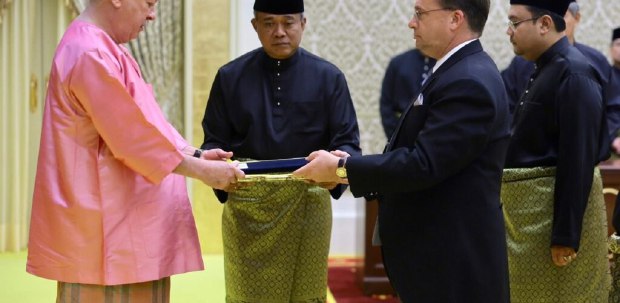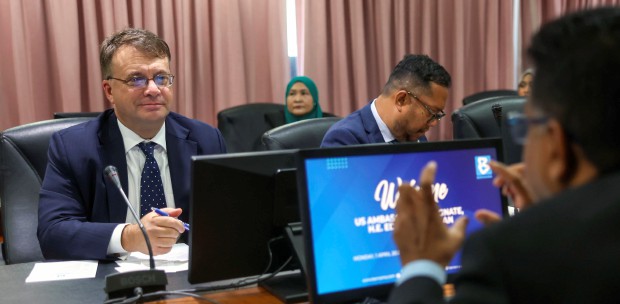KUALA LUMPUR: Malaysia's peaceful transitions in government from 2018 onwards, despite facing a slew of challenges, is testament to the strength of its democratic system, said US Ambassador to Malaysia Edgard D Kagan.
Describing Malaysia as "a democratic success story", Kagan said these peaceful transitions also demonstrated the strengthening of Malaysia's status as a democracy in the region, which has earned it the respect of other countries.
Kagan, who had served as Deputy Chief of Mission at the US Embassy in Kuala Lumpur from 2014 to 2017, said he was aware of the remarkable changes Malaysia had undergone.
"This is a democratic success story. When I left here in 2017, I think few people who would have predicted what happened between 2017 and 2024.
"We are aware of the fact that Malaysia has gone through remarkable changes. They happened peacefully, it happened in a way that reflects a remarkable journey with regards to democracy.
"Malaysia actually is a great response when people question if democracy works. I point to Malaysia because it's hard to imagine what would have happened if there hadn't been a democratic system that Malaysians were committed to," he said at a roundtable session with Malaysia media at the US ambassador's residence in Kuala Lumpur today.
Kagan also paid tribute to Sultan Ibrahim, King of Malaysia; former Yang Di-Pertuan Agong Al-Sultan Abdullah Ri'ayatuddin Al-Mustafa Billah; as well as Prime Minister Datuk Seri Anwar Ibrahim's leadership for upholding democracy despite tremendous pressure.
He also commended the Malaysian people for their ability to deal with changes.
"They are doing it with remarkable calm, they've accepted the importance of institutions as compared to individuals. We think that this shows real leadership and reflects Malaysia's strengths," he said.
On trade, Kagan said Malaysia remains an attractive investment destination for American companies. He cited the Department of Statistics' figures, which showed that the US provided 43 per cent of investments into Malaysia, which is greater than the next six countries combined.
Malaysia, he said, is also an important source of critical components for the US economy, including semiconductors, demonstrated by the shutdown of several automotive factories in the US due to the dependency of components from Malaysia.
He also raised the importance of working on problems identified during the Covid-19 pandemic, which in some cases were exacerbated by traditional trade policy, such as over concentration of supply chains in one place.
He said the movement of manufacturing by companies that have decided to go for China Plus One strategy has benefited Malaysia.
"This is also a reflection also of the confidence companies have of the continued linkages of supply chains going to the US.
"We've been very good partners for the last 50 years and I think we'll be good partners for the next 50 years," he said.






